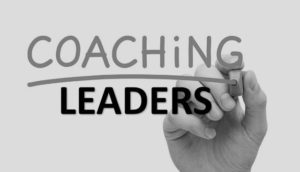 Leaders are the single most important variable in a company’s success equation. They create vision, inspire the workforce and get things done. It is through their efforts that employees are developed, engaged and rewarded.
Leaders are the single most important variable in a company’s success equation. They create vision, inspire the workforce and get things done. It is through their efforts that employees are developed, engaged and rewarded.
As leaders take their place in our ever changing workforce, being prepared to take on today’s challenges can seem overwhelming. A recent study by Gallup indicated that 70% of employees are not engaged at work resulting in employees who are less productive and companies that are less profitable. Employees today want more than a job and a paycheck. They want a leader that they can trust. They want to understand how they fit in the big picture. And they want a leader who cares about them, their career and values their contributions.
Traditional leadership training can provide the basics for dealing with many of these issues but based on the results of the Gallup study, it appears that traditional leadership training has missed the mark. Every company is different, every work group is different and every employee is different. It is left up to the leader to evaluate the work group dynamics, identify cultural norms and find ways to interact with employees to meet their expectations, engage their talents and facilitate a high performing team. Unfortunately many leaders struggle with these aspects of leadership resulting in low employee engagement, increased turnover and reduced business outcomes.
To fill this gap, many companies look to an experienced coach to provide leaders with practical advice and approaches for engaging people and increasing the effectiveness of their team. Internal company consultants, who have coaching experience and understand the business can frequently provide this coaching. But there are several benefits to using external consultants. External consultants not only bring a wide breadth of experience to the table but may be able to pinpoint cultural issues that existing company employees may not be able to see. In addition, leaders may be more inclined to confide in an external consultant and be more accepting of advice knowing that the coach is independent of office politics. Finding the right consultant is important. A consultant that has ‘been there done that’ can more easily relate to a leader’s challenges and can provide advice based on dealing with similar circumstances. When it comes to coaching and mentoring leaders, there nothing like real life experience.
Effective coaching can build a leader’s capability to connect with employees, build teams and increase employee engagement. These capabilities translate into positive benefits not only for the leader but for his or her team, the company and shareholders. And that’s why leaders need a coach.